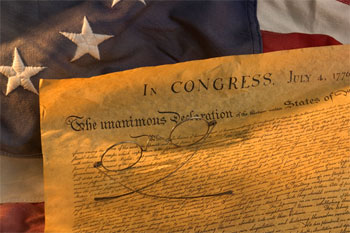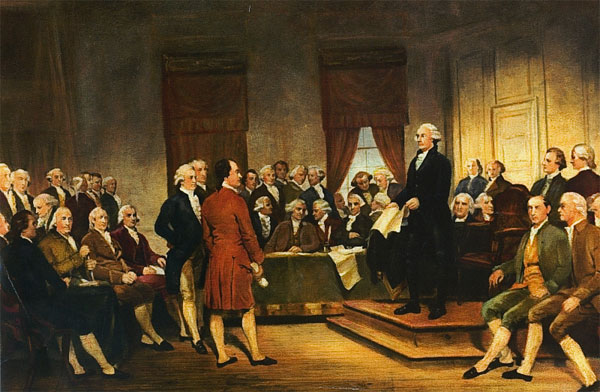

When you need to complain about a problem, to whom do you go?
Do you talk to your best friend? Your family? Your teacher? Maybe you just update your status on Facebook or another online site. In that case, to whom are you complaining? The world?

When the Founding Fathers wrote the Declaration of Independence, they literally did just that. The introduction of the document ends with “Let facts be submitted to a candid world.”
The Declaration of Independence then lists 27 separate complaints, better known as grievances, againstInteractive popup. Assistance may be required. . The founders directly called their former ruler a “tyrant.” They considered these grievances to be “facts.”
However, the Founding Fathers got to do something that many people don’t when they complain—they had a chance to come up with a solution. After winning independence and spending a brief period under the Articles of Confederation, the Founders became the Framers (see box below). They wrote the U.S. Constitution to make sure that a tyrant never ruled again in America.

Source: Washington Constitutional Convention 1787, Wikimedia
Many of their grievances against King George III are specifically addressed in the Constitution. In this lesson, you will see how the Constitution works to prevent tyranny in the new United States of America.
→Quick Reflection: Think about the last time you complained about something. Did you get to propose a solution? Did it work?
Founders vs. Framers
Framers, a special subset of the Founding Fathers, are the people who helped write the U.S. Constitution. They “framed” America’s system of government like a builder might frame a house, giving it its basic structure.
Most of the Founding Fathers we study, like George Washington and Benjamin Franklin, are Framers. However, the chief author of the Declaration of Independence, Thomas Jefferson, is a Founder but not a Framer. He was not at the Constitutional Convention because he was stationed in France, serving as U.S. Ambassador.